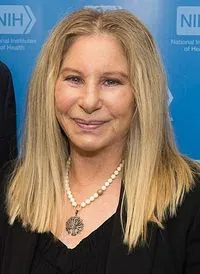Former Top Doctor Raises Alarm Over Scottish Gender Clinic Practices
Dr. David Gerber, ex-clinical lead of Glasgow's Sandyford clinic, warned of an "overly affirmative stance" in gender services. His report highlights concerns about patient assessments and treatment decisions influenced by socio-political climate.

Dr. David Gerber, former clinical lead of the Sandyford clinic in Glasgow, voiced concerns about the facility's approach to gender services. His whistleblowing report, submitted over three years ago, highlighted an "overly affirmative stance" towards transgender treatment and surgery.
The Sandyford clinic, often referred to as "Scotland's Tavistock," has faced scrutiny for its practices. Dr. Gerber led the clinic for a decade until 2020, during which time he observed concerning trends in patient assessments and treatment decisions.
According to the report, the socio-political climate significantly influenced the clinic's processes. The focus on trans rights by the Scottish Government under Nicola Sturgeon allegedly blurred the "distinction between biological sex and gender in law." This environment reportedly led to a "lack of objectivity in staff assessing gender patients" and a "fear of challenge" among staff members.

The whistleblowing document revealed instances where young patients were referred for hormone therapy or surgery despite potential red flags. In one case, a teenager received testosterone treatment despite details in their psychological assessment that "alarmed" a staff member. Another incident involved a surgeon questioning the referral of a young patient for chest surgery.
Dr. Gerber also raised concerns about young patients being transferred to adult gender clinics while suffering from other mental health conditions or displaying signs of autism. These practices align with the controversial "affirmative" treatment model used by the now-closed Tavistock Clinic in London.
Between 2016 and 2023, almost 100 children aged 16 or under were referred to endocrinologists for possible puberty blocker prescriptions by the Sandyford. The youngest known patient was just nine years old. Puberty blockers pause physical changes in young patients, who may later receive estrogen or testosterone to align their bodies with their gender identity.
Following the publication of the Cass review on gender identity services in England, the Sandyford clinic announced in April 2024 that it would no longer prescribe puberty blockers to under-18s. However, critics argue that the clinic's methods are still based on American guidelines that Dr. Hilary Cass, the pediatrician who conducted the review, described as "lacking developmental rigour."
Dr. Gerber's report recommended a review of whether the Sandyford "should continue in its current format." He emphasized the need for a more cautious approach, particularly in the young person's service, which appeared to have "adopted an overly affirmative stance in their assessment process."
The NHS Greater Glasgow and Clyde (NHSGGC) health board investigated the complaint but did not uphold Dr. Gerber's concerns. The case was escalated to Scotland's Independent National Whistleblowing Officer (INWO), which acknowledged that some cases would have been handled differently under new procedures introduced in 2021. However, the INWO ruled out failure or risk to patients.
"NHSGGC has a robust whistleblowing policy that enables members of staff to raise concerns they may have anonymously and that will always be fully investigated. The concerns raised in 2021 were investigated both internally, and independently by INWO, and were not upheld. We are pleased that INWO has highlighted that our own investigation was robust and adhered to procedures in relation to this case."
The debate surrounding gender identity services for young people remains complex and contentious. As medical professionals and policymakers grapple with these issues, the focus remains on providing appropriate care while safeguarding the well-being of vulnerable individuals.


































